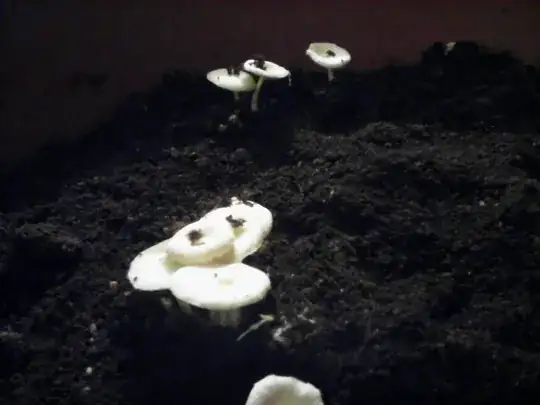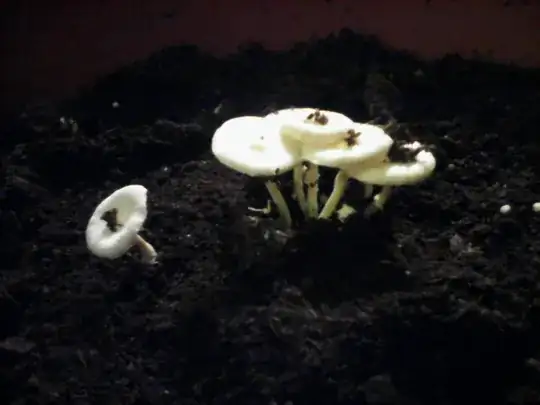I'd like to know the source of the soil in your pot - the likeliest explanation is that the tomato seeds did not germinate at all, but there was mycelium in the soil, and that's what's grown. Mycelium are present throughout soil and mushrooms or toadstools are the fruiting bodies it produces at various times. If you used garden soil, this is the most likely explanation, and depending on the consistency and quality of the soil, may also explain why your tomato seeds didn't germinate. A photo of the mushrooms would be interesting to see.
UPDATE
I can't see the toadstool/mushroom detail clearly in the photograph, but the most likely ID is Lepiota cristata, pic in the link below, you'll need to scroll down to find it. These arise naturally, which means the mycelium was present in the soil in your pot, and, if that's what they actually are, they are most definitely not edible.
http://www.team2010.altervista.org/3b/Mushrooms.html
And if you didn't wash off the tomato tissue from around the seeds, that might explain why they didn't germinate - the presence of the mushrooms wouldn't have affected germination.

